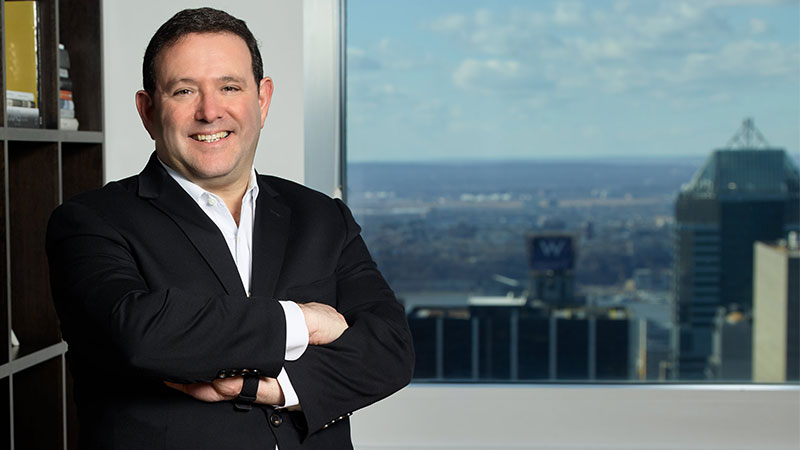By Peter L. Scher, Head of Corporate Responsibility and Chairman of the Mid-Atlantic Region, JPMorgan Chase & Co.
Please update your browser.

Insights
Our geopolitical challenges have rarely looked as uncertain as they do today. The COVID-19 pandemic is accelerating some trends, complicating others, and exacerbating the already raw tensions that reside both within countries and between them. It is imperative that business and government leaders work together to solve the health, economic and societal problems the world is now facing to help those who need it most.
In light of these historic challenges, J.P. Morgan’s International Council met throughout the summer and fall to discuss what lies ahead and make recommendations related to three high-stakes issues that are contributing to the broader political, economic and societal re-shaping of the post-COVID world order: (1) the future of the international system; (2) the future of work; and (3) China’s role in the world.
Over the course of these conversations, it became evident that unless and until the core problem of inequality is addressed, all other economic objectives will remain elusive. It also became clear that today’s business leaders have a responsibility to help government officials adapt to the transformations reshaping our societies, to act as part of a greater whole and to advocate on behalf of the communities that they serve.
In recognition of the very significant challenges faced by leaders around the world, we are sharing the key takeaways from the International Council’s discussions.

Executive Summary
A new U.S. president will soon take up residence at 1600 Pennsylvania Avenue. With a change in Washington comes an opportunity for fresh approaches to both the immediate health crisis and the myriad, attendant challenges contributing to a broader political, economic, and societal re-shaping of the post-COVID world order. J.P. Morgan’s International Council—a coterie of global business leaders, former Prime Ministers, and ex-cabinet officials—convened several times throughout the Summer and Fall to discuss what lies ahead. Among the many expert voices were former Prime Ministers Tony Blair and John Howard; CEOs Jamie Dimon (JPMorgan Chase), Joe Kaeser (Siemens), and Alex Gorsky (Johnson & Johnson); Former Secretaries of State Condoleezza Rice and Henry Kissinger; and former Secretary of Defense Robert Gates.
In recognition of the fact that business leaders have a heightened responsibility to help drive solutions in these unprecedented times, we are sharing some of the key takeaways from the Council’s discussions in order to highlight areas that may carry elevated risk or opportunity during the critical weeks, months, and years ahead. While not all of the specific views expressed in this paper were shared by all Council members, some frequent observations did emerge:
JPMorgan Chase & Co.'s website terms, privacy and security policies don't apply to the site or app you're about to visit. Please review its website terms, privacy and security policies to see how they apply to you. JPMorgan Chase & Co. isn't responsible for (and doesn't provide) any products, services or content at this third-party site or app, except for products and services that explicitly carry the JPMorgan Chase & Co. name.